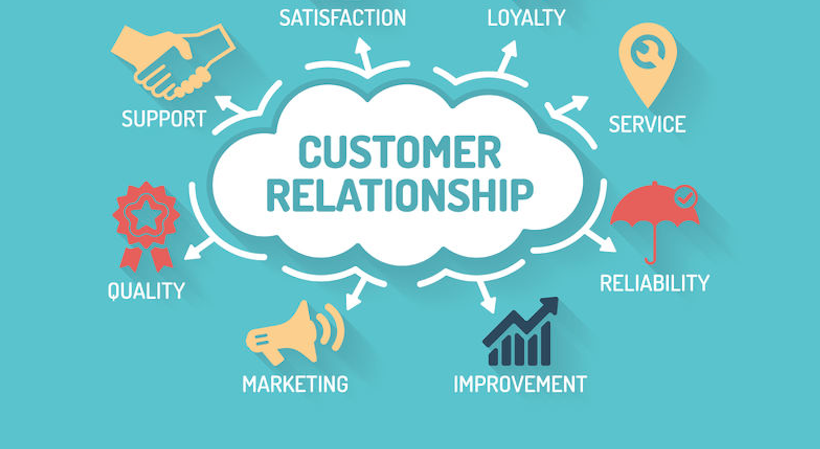Some entrepreneurs hold the notion that customer relationship management (CRM) solutions are like marble lobbies and corporate jets: fine for large enterprises, but unnecessary and expensive for startups and small companies.
But how wrong they are.
The misconception arose in the technology’s early days, when the software was seven-figure expensive and required installation teams to move into your office for a year and a half. The real poke in the eye was that the solutions were unwieldy, complex and poorly integrated, and many employees never bothered to use them.
Today’s CRM solutions have evolved into sleek, highly usable creatures that can be customized for a startup’s needs and expanded to accommodate growth. However, it’s critical to choose a CRM platform in your startup’s early days, since the more the company grows, the more difficult a solution will be to implement.
Those concerns aside, there are many other reasons why startups should use CRM solutions today.
Related: How New Generation Point of Sale Systems Can Help Retain Customers
Good customer relationship management plots a path to growth
At the launch of a company, sustainable growth should be on every entrepreneur’s mind. There simply aren’t enough hours in the day to employ the full arsenal of techniques that can be used to attract the marketplace’s attention. However, as you grow, your lists of contacts, prospects, partners and investors will grow, and without a good CRM solution, you’ll lose track. The last thing you want to do is present a confused, haphazard image to potential customers.
If you’re keeping some customer information in a billing filing cabinet, other information in the customer support department, some in the sales teams’ notes and the rest of it in the business owner’s head, you’ll engage in a lot of duplicated effort that opens you up to errors, wasted time and customer churn.
Think of customer relationship management as the Grand Central Station of customer information, allowing you to personalize the sales and marketing processes, and even automate elements of it.
CRM solutions providers will automatically capture leads from your website and convert them to new contacts in the CRM database, as well as convert customer relationship management data into other documents such as quotes and invoices.
You can use CRM to spot trends
By the time opportunities are visible to people, it’s often too late to take advantage of them. Companies are overwhelmed with data, so it’s hard to see the pea under the mattress. Additionally, customer behaviors are changing, so the conventional wisdom from a decade ago often doesn’t work anymore.
Many customer relationship management solutions today are reinforced with artificial intelligence (AI) and analytics that can spot trends before they become obvious. They allow you to identify the leads that have the highest probability of being converted into sales, so you can understand where you should focus your efforts. They’ll also allow you to better understand customer behavior so you can gain insight into which customers are likely to buy and which might be in danger of switching to your competitors.
You can save time on reporting
Reports take up approximately 23 percent of your time, according to a study by Pace Productivity. They don’t directly generate revenue, but they’re a necessary part of every entrepreneur’s job. Time reduced on tasks such as reporting is more time to spend innovating, communicating and selling.
Typical reports contain a lot more information than you need, so time is wasted finding and aggregating it. Modern CRM solutions offer reporting tools that allow business owners to configure data in any way they want to create a snapshot of preferred key performance indicators. Additionally, they allow you to import and export data to other business processes (think email marketing, accounting software or Excel spreadsheets).
It fosters collaborative selling
Increasingly, the “lone wolf” approach to sales doesn’t work. Products are more complex, administrative tasks are outsourced and customers use multiple communications channels while expecting their problems to be solved right now, not when the responsible salesperson gets back from vacation on Tuesday.
With a centralized CRM database, sales and customer support teams are better able to take a collaborative approach and serve the customer holistically, picking up where another employee left off. Processes become more transparent (and therefore more accountable), opening doors to best practices and cutting out unproductive behaviors.
Sign Up: Receive the StartupNation newsletter!
You pay for only what you use
Earlier iterations of CRM saw companies spending a fortune on seats for employees who seldom used the solution. Companies were forced to buy the maximum number of licenses they might use during their busy season, only to watch them gather dust and waste money during quiet times. CRM apps today allow startups to expand or contract their usage as needed monthly, reducing waste and saving capital. (It’s also helpful to some organizations that SaaS models allow a company to account for CRM as an operating expense rather than a capital expenditure).
Additionally, you won’t get stuck with a solution that doesn’t work for you. Many CRM app providers allow startups and SMBs to try the platform for free to see if it’s going to be a good fit. You don’t need to be a large, established company to take advantage of the benefits of CRM. Instead, think of CRM as a strong foundation on which you can build your startup and help it grow and prosper.






